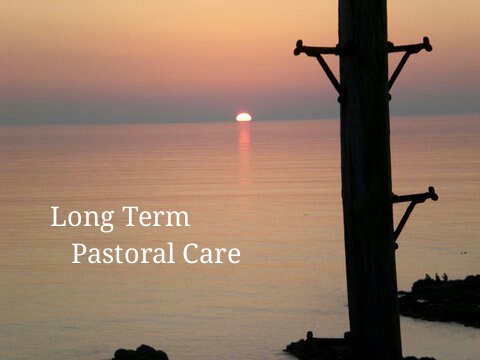Practical Strategies For Pastoral Care
/Practical Helps
Since the need for longer term care is so high, what should be in place and ready to be activated in these kinds of situations?
- Basic Care Should Already Be In Place
Small groups, Sunday school classes, other groupings, and a basic care committee need to be in place already (moving transitions, welcome committee, new baby, meals, etc.). If there is not a culture of care at this level, then it will be even harder when the need for long term care arises. Any and every church should develop a care ministry that begins here and covers the basics. Make this a ministry team that includes men and women.
- Form a Small Group to Oversee Care When A Specific Need Arises
When long term care needs arise, the critical first step is to form a small group to respond and manage the care. Having a group, instead of a single individual is critical to preventing helper burn out. Begin the process with someone making contact with the family and asking for permission to form a care group. Suggest names and/or ask them for people with whom they will feel comfortable.
Asking for permission needs to pervade the entire process or the family will likely feel micro-managed. Having the family grant permission honors them and communicates that though things may be hard, they are not out of control.
A good support group can provide stability. They need to ask good questions, listen to the family, receive good information, see the needs, ask for permission to act, organize a system that includes all who want to help, implement and oversee the daily plan, make changes when necessary, and remain flexible. Not a small task!
- Don’t Make an Elder or a Deacon the Organizer
This is a suggestion learned from experience and should be carefully considered. An elder or deacon may be on the team but should not lead it because their focus should be on providing oversight and care for the care-givers. Usually you can identify someone outside the elder or deacon board who has strong administrative gifts to provide leadership and structure for the care team. Elders and deacons may certainly assist and be involved but they should be thinking about the pastoral needs of the care group itself. In addition, the elder and deacon can provide a good link to the larger elder/deacon board.
Copyright © 2013 Timothy S. Lane. All rights reserved.





